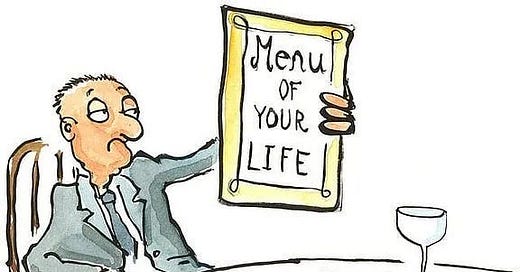👋 Hey, it’s Zohvib. Welcome to my weekly newsletter where I share frameworks of proven ideas to become smarter and healthier. If you’re not a subscriber, here’s what you missed this month:
Subscribe to get access to these posts, and all future posts.
Let’s get real for a minute.
Putting your heart into your work, only to have it go unnoticed, feels like shouting into an empty room. You’re pouring your energy into every piece, hitting publish, and… crickets.
It’s enough to make you wonder, “Is my writing the problem?” But here’s the thing:
It’s probably not your writing.
I’m here to show you why – and what to do about it.
Is it really YOUR writing?
Here’s the blunt truth—It’s not about making each sentence sparkle; it’s about connecting with the right readers.
We’re fed this myth: if your writing is good enough, readers will come flocking. But I’m telling you – if your words aren’t reaching the right people, they might as well not exist.
So, before you start tweaking every comma, ask yourself:
Are you sharing your work where your ideal readers are hanging out?
Are you giving them a reason to click?
Is your piece positioned in a way that grabs attention?
It’s not always what you say; it’s how you’re putting it out there.
Audience
Harsh truth #2: Not everyone is your reader. And that’s okay.
Writing for “everyone” is like whispering in a crowd – no one’s going to hear you. Instead, focus on a specific audience, and make them feel like your piece is tailor-made for them.
Ask yourself:
Are they craving deep, insightful stories? Or quick, actionable tips?
Do they want beginner advice, or do they already know the ropes?
When you truly understand your audience, your work stops being “just another piece” and starts to stick with people.
“Don’t find customers for your products; find products for your customers.” – Seth Godin
Make-or-break
You’ve got seconds to capture someone’s attention.
That first line? It’s make-or-break.
Your headline, your opening sentence, it’s all part of the hook that keeps them from scrolling on. But here’s a pro tip: it’s not about being gimmicky; it’s about showing why your words matter right from the start.
Think of your opening as a friend saying, “You need to hear this.”
And once you’ve hooked them, don’t let go. Write like you’re having a conversation.
Keep it bold, keep it real.
Presentation
Your words are gold, but if your formatting’s a mess, nobody will dig to find it.
Think of the presentation as the packaging of your message. If your text is one big wall of words? People will bounce. Fast.
Try this:
Use subheadings and bullet points – make your work scannable.
Include visuals – a sharp image or quick infographic can highlight your points.
Consistency matters – clean font, plenty of white space. Easy on the eyes = more readers staying longer.
Spend ten seconds on the “look” of each piece. It’s the first impression that can make or break everything that follows.
SEO
Let’s debunk this myth: SEO isn’t just for marketers.
Think of SEO as a way to help your readers find you. It’s not “tricking the system”; it’s like putting a big neon sign above your work saying, “Over here – this is what you’re looking for.”
Here’s how I’d explain SEO to a kid:
Imagine you have the best lemonade stand on the playground. But if you’re tucked away behind the swing set, no one’s going to find you. SEO is like setting up your stand right where everyone can see it.
If you want your work to be found, dive into SEO basics. Use keywords that match what your readers are searching for.
It’s your way to say, “This is what you’ve been looking for.”
Becoming a reader’s writer
Here’s the big secret to becoming a writer worth reading: Think like your readers.
Your words should invite them in, not talk at them. Ask yourself:
Who’s reading this?
What’s their biggest struggle or passion?
Why would they stop and read this piece?
Asking these questions isn’t about creating content for the masses. It’s about forming a connection with the right people.
Because when you write with clarity - purpose - empathy, your readers can feel it.
“Almost all good writing begins with terrible first efforts. You just have to get those out of the way.” – Anne Lamott
In the end, it’s not about pleasing everyone.
It’s about resonating with the people who need what you’re saying.
So next time you hit publish, ask yourself: Am I giving my readers something they can’t ignore?
Thanks for reading! I hope you found some value in it.
See you next week!
-Zohvib
P.S. I’d love to help you with your writing. If you're looking to shape your personal or professional writing life, let’s chat. Just hit reply, and I’ll share all the details with you. Wishing you all the best—Talk to you soon.




